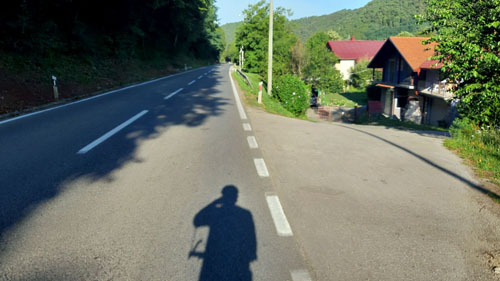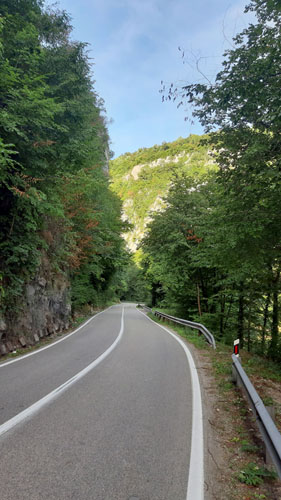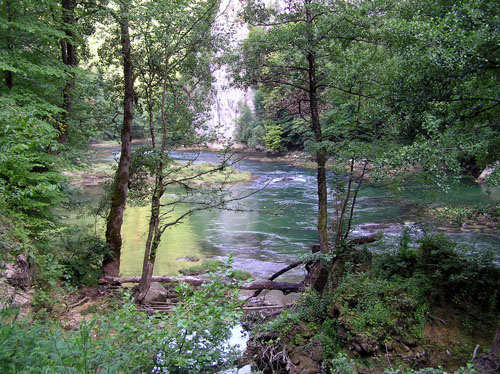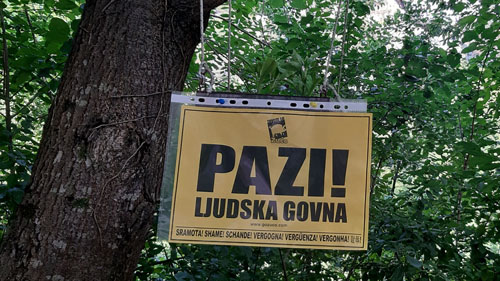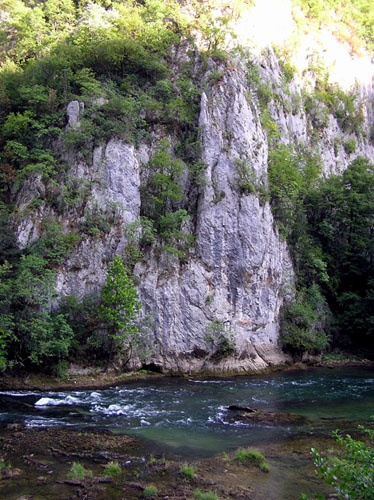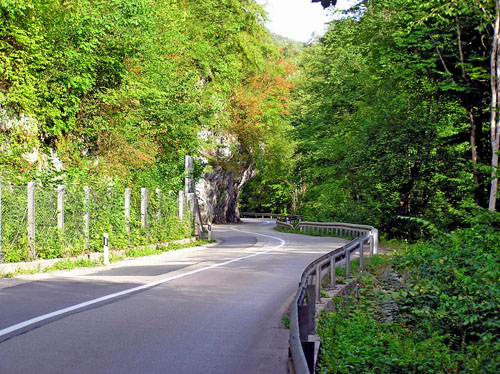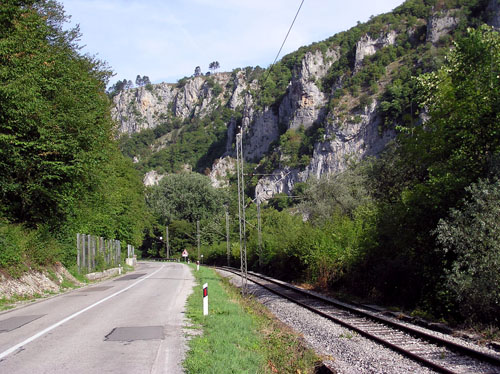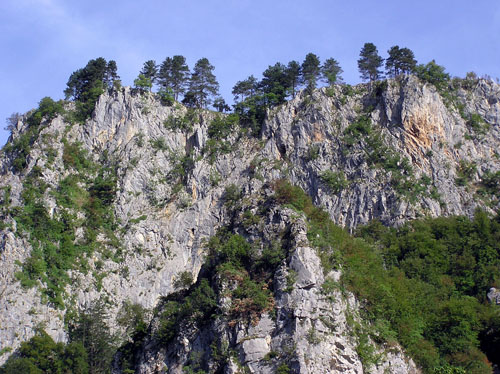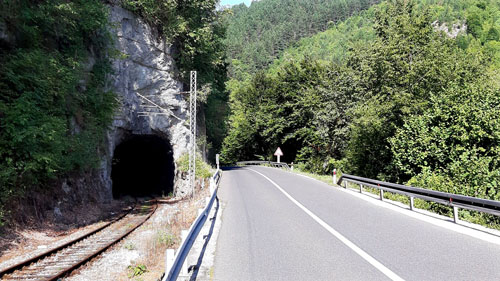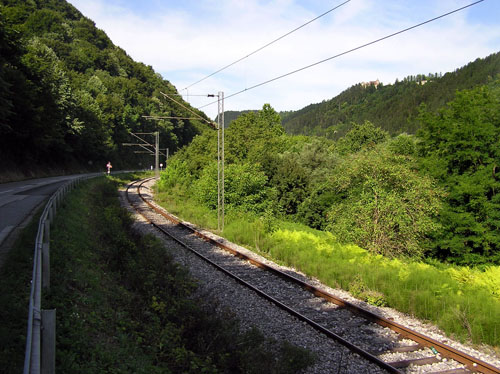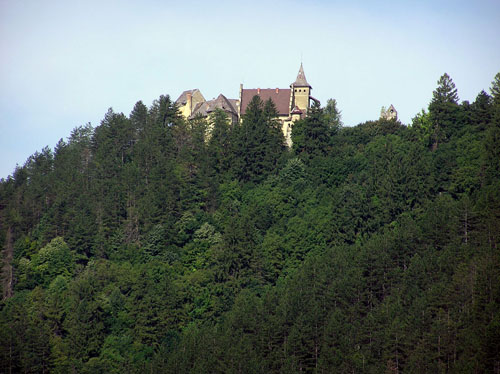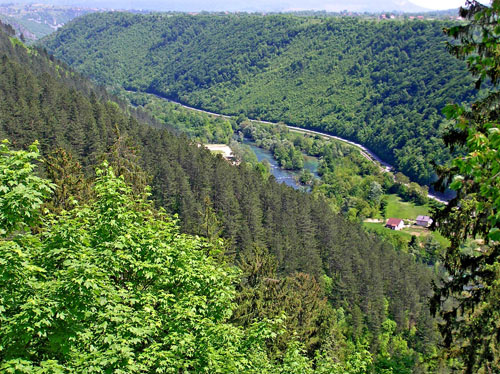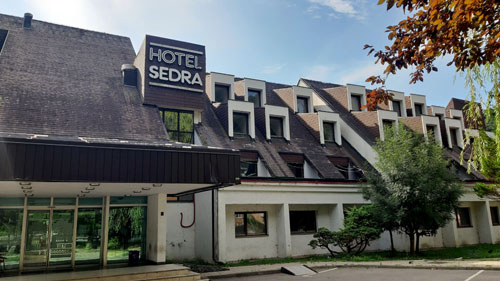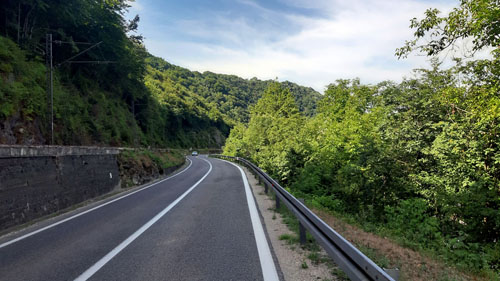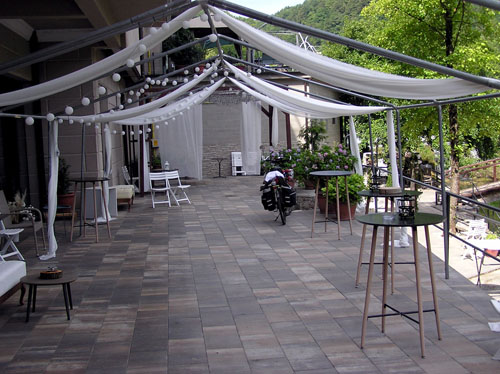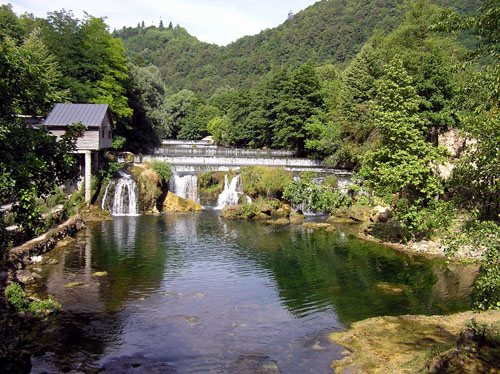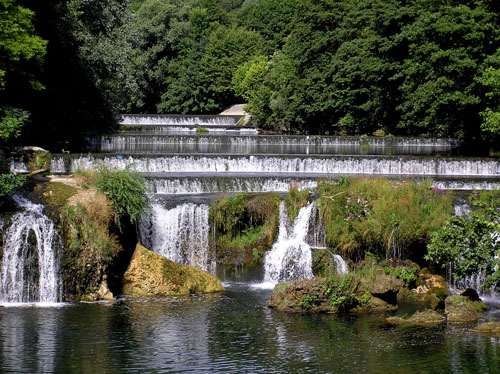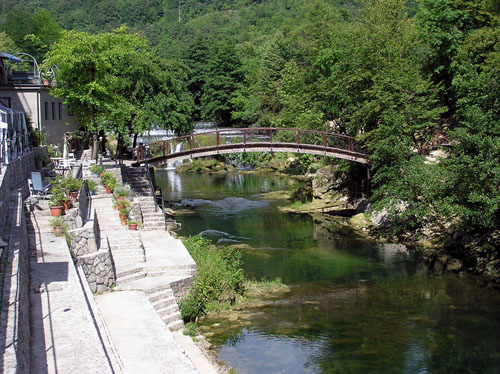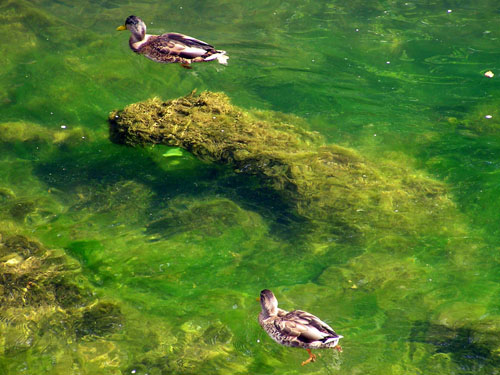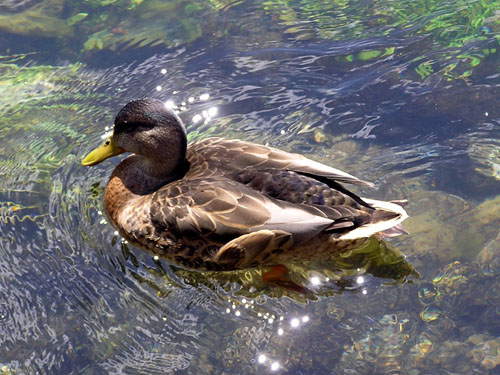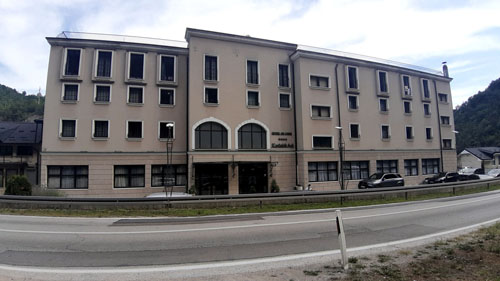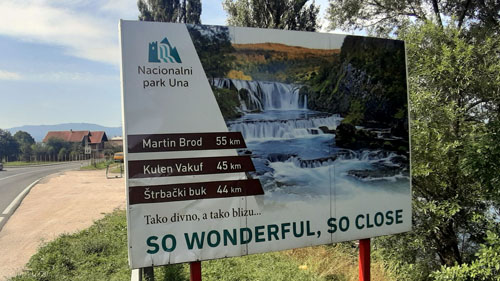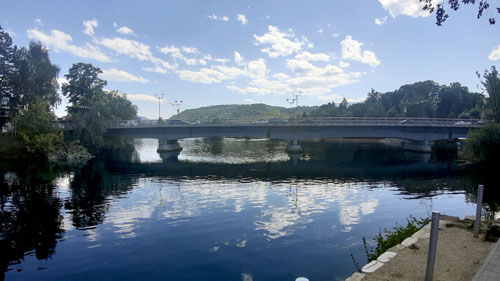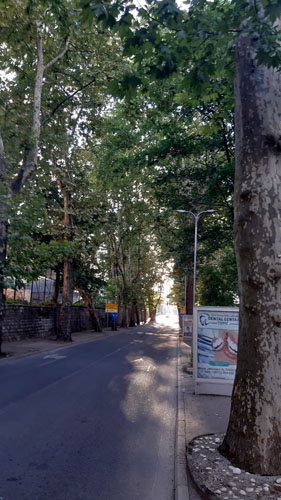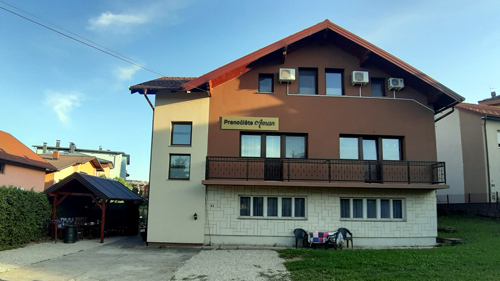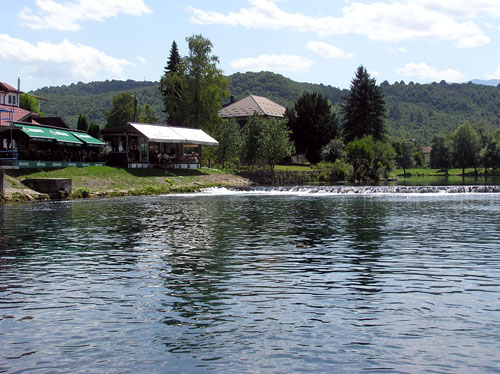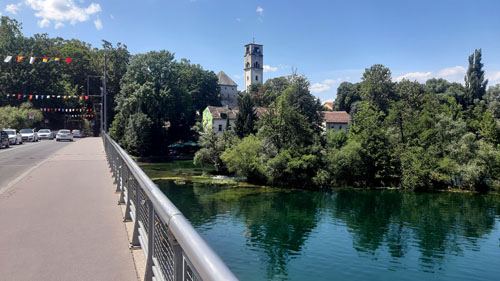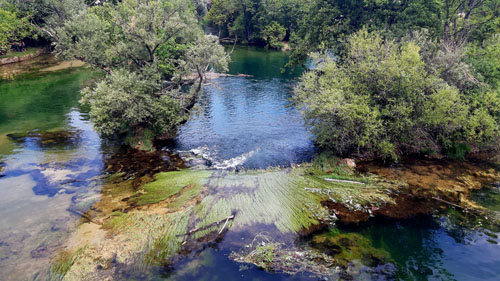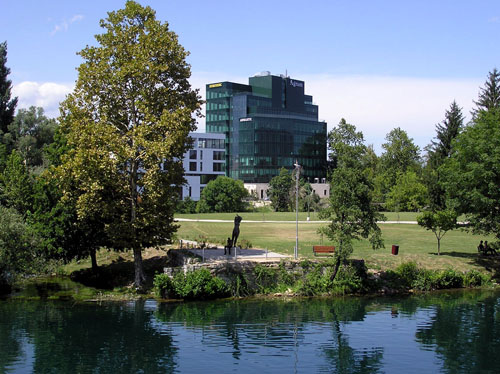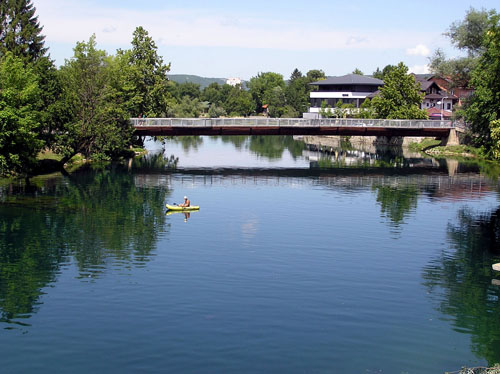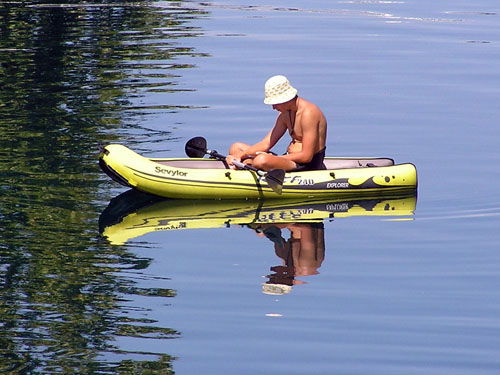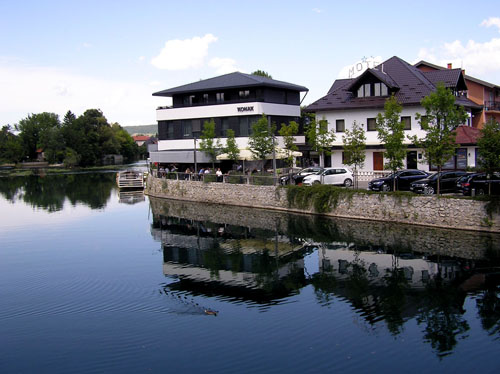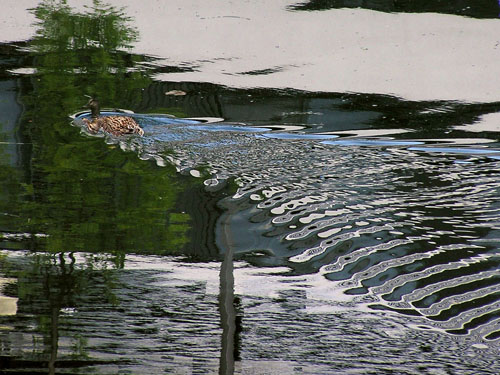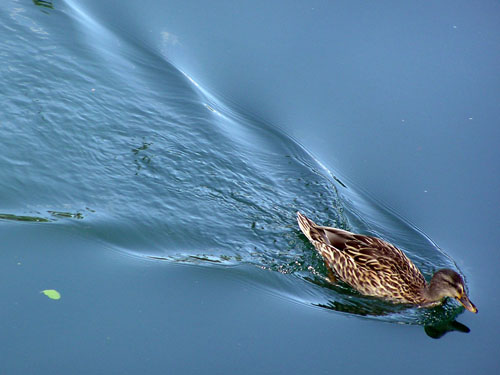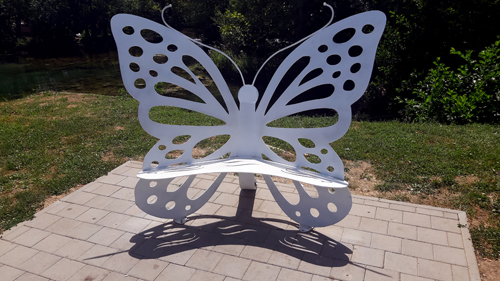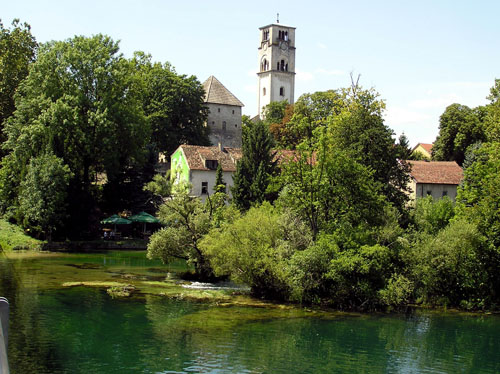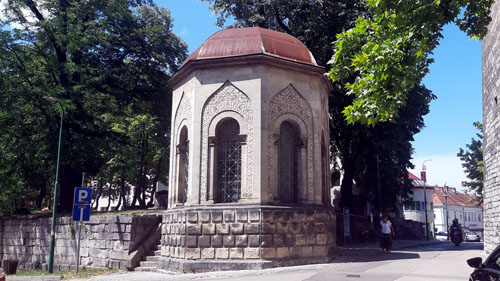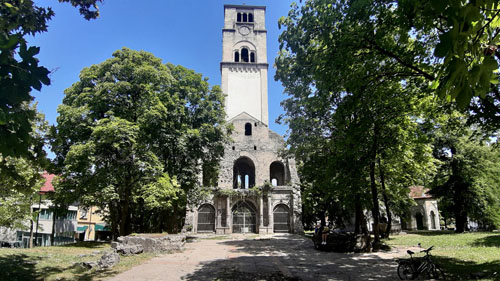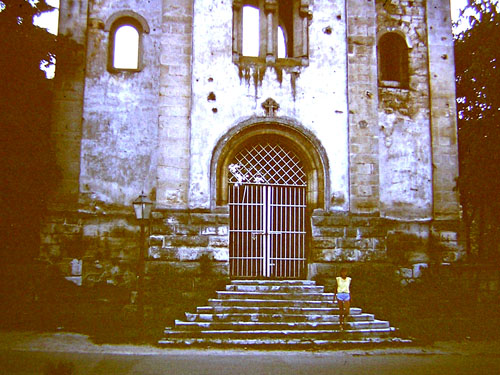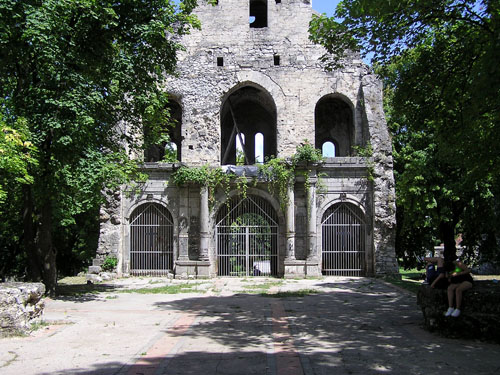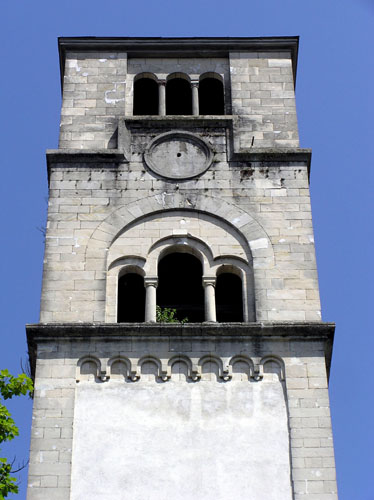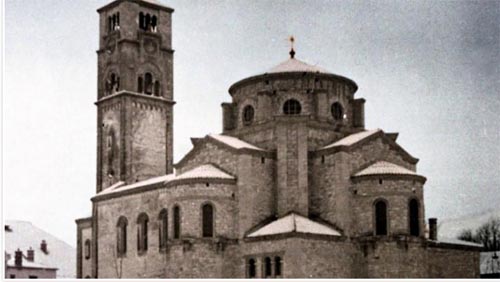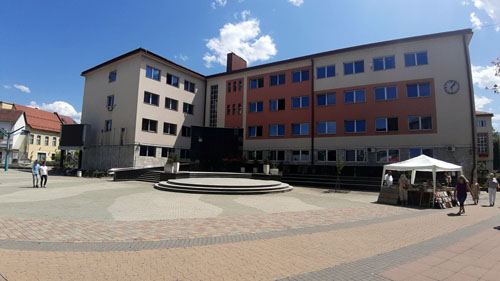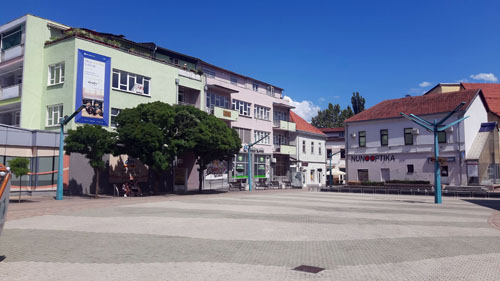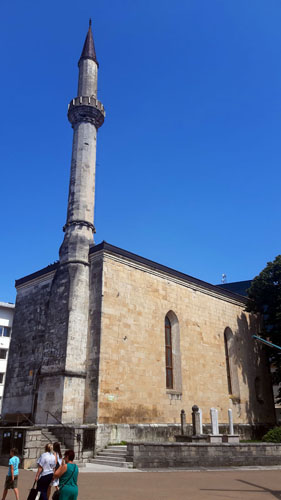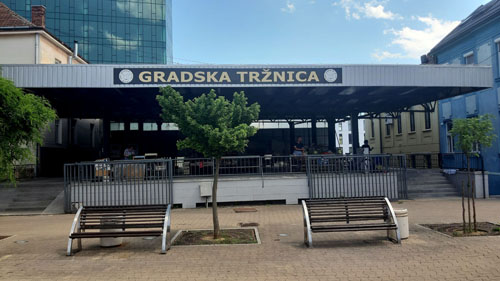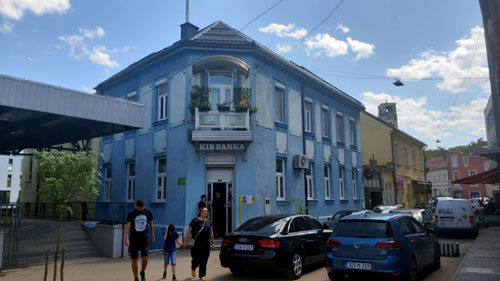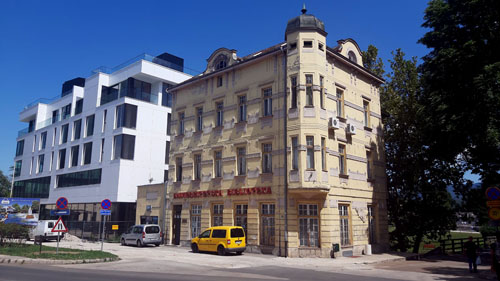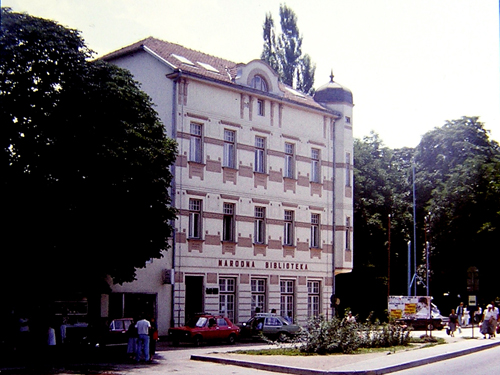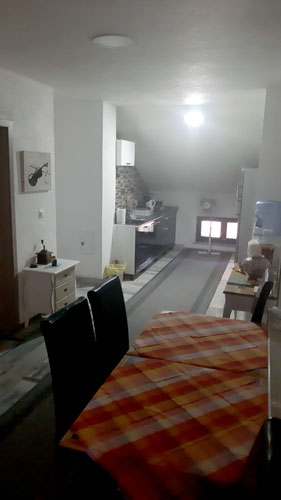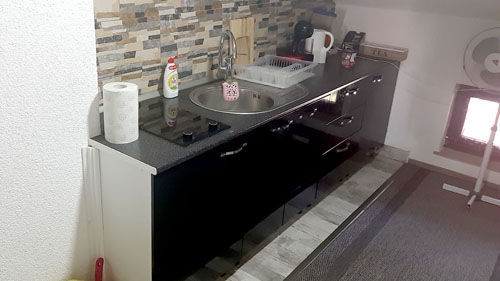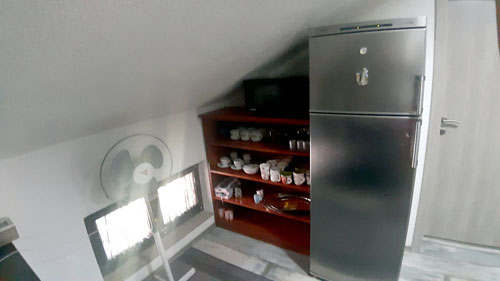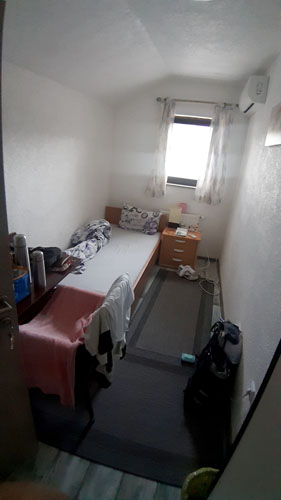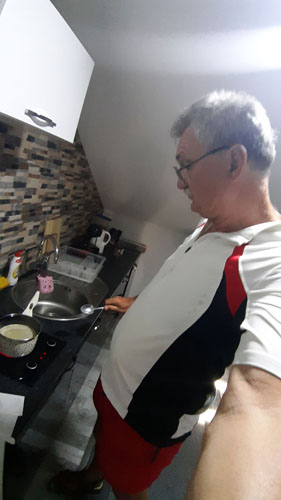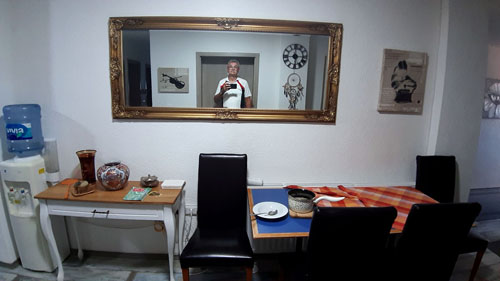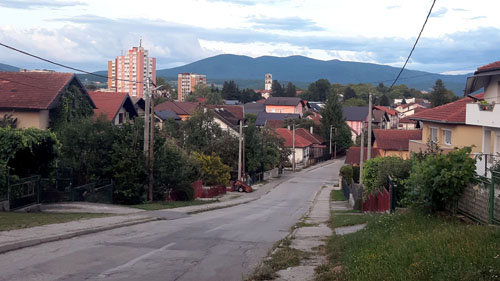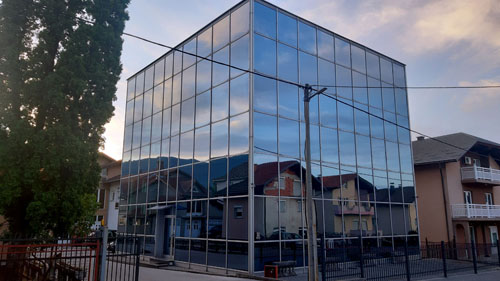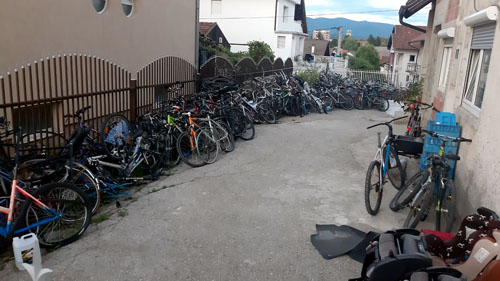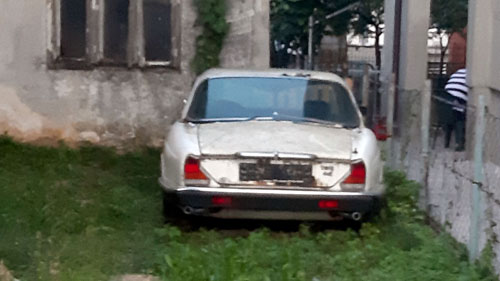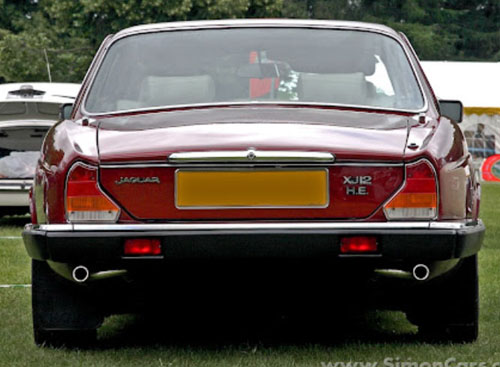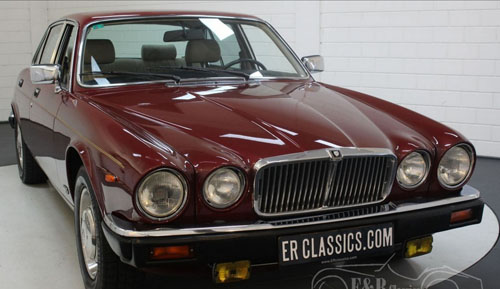Marketing
The Un a River - The second day again 2021
You can come back on the previous part of this travelogue here.
The second day again
If you don't want to read, skip the text and see the images of this day of journey here.
You can see the map of the this day of the journey here.
I slept surprisingly comfortably and woke up rested and chilled. Yet sleeping in a real bed is incomparable to sleeping in a tent.
After breakfast on the terrace of my accommodation and storing the equipment and bike already after 7, I started to turn the pedals. I bought peaches and cold beer in the town with which I filled thermoses, and I was already leaving the town at 8 AM.
I consider the morning the best part of the day. The summer morning of a day that will be sunny and warm is something for me the best and most beautiful. If I ride a bike that morning through impressive areas and outside (larger) settlements, then it gives me the impression of heaven on earth.
So it was this morning and the next morning on this journey.
But this day, that feeling of heavenly riding was further enhanced by the fact that there was no uphill or traffic, and there was an exotic canyon and river. And there is also the railway! True, she is generally not seen in the first part, but it makes up for it later.
However, the memory of the debacle from two years ago was fresh in my soul (again about it!). That memory was further enhanced by driving and observing the environment, so it seemed to me as if it wasn’t two years ago but yesterday.
And so I drove with some ambivalent feeling in my soul both yesterday and today. On the one hand the quiet fear of whether I will endure, and on the other hand the restrained delight in the landscape through which I drive.
The peace, quiet and comfort of this summer morning, riding on a winding road (but without ascent) and mostly in the shade, with very, very, very little traffic, gradually suppressed that fear to a minimum and allowed the soul to enjoy relaxing.
With that relaxed enjoyment, my thoughts wandered to who knows where, but suddenly a scene brought them back here and now to this place.
"Pazi! ljudska govna!" = "Watch out! Human shit!"
I guess you can't read the web address in the video above, so I'm listing it here. So, it is about www.gozuco.com and you will find the following on it: Žućo is paying you 200 HRK (about 26 €) today for what an ecological scoundrel has done. Deliver him an image of the ecological scoundrel in action, you are remaining anonymous, the scoundrel is reported, and our nature is pure! "
I wonder how many applications come to him and when he will go bankrupt by sharing 200 kunas each, all for the sake of preserving the environment. And yet, on second thought, he may not get as many pictures as I thought at first. Yet, as crude and brutal as it is, it may therefore be an effective way to educate the unscrupulous ecologically. Because, if we pay a fine, say, for traffic offences, why not punish offences against nature, when we can’t already raise awareness.
Riding a bicycle, I conclude that even in Croatia, especially in more discreet places, the ecological awareness of the population (or some of them) is not at the level, and here in Bosnia, it is significantly increased. Unfortunately, there are people everywhere who think, "Wherever you find a nice place, leave the garbage there!" Perhaps the idea of public humiliation of such is not without significance.
I can't resist, so I re-publish the scenes from two years ago. As if stopping in front of them and long, long observation was not enough.
About ten kilometres after the Bosanska Krupa town, the railway, which was on the other side of the Una river, joins the road, and further, all the way to the Bihać town, both go along the same side of the river. This is probably due to the fact that along the other side of the Una river are practically vertical cliffs. So it was, to me at least, an interesting colouring between the greenery of the trees and the greyness of the rocks.
But from time to time it used to be narrow on this side of the river, so the railway found its way through the hill by tunnel.
Ostrožac Castle appears far away on the opposite hill. I brought it closer to myself with the zoom lens of my camera.
Many years ago, I visited the castle with a one-day riding, so I took a picture of the Una valley/canyon from it, and somewhere in that picture is this place where I took the picture above.
When I arrived in the Srbljani place where I met the road leading to the castle and further to Cazin, Velika Kladuša and Croatia, I crossed the bridge and turned right and headed to the large and deserted parking lot in front of the hotel Sedra.
Everything, both the parking lot and the hotel and the surroundings, abandoned and deserted like this, seemed a bit sinister to me, and also confusing that now in the middle of summer the hotel is not working. Pushing this ominousness aside, this abandonment gave off a kind of peace and serenity, which was only occasionally disturbed by the breeze, though quietly and therefore gently and considerately. That breeze won me over, so I found a bench in the shade and parked my bike next to it. After consuming the juicy peaches, I lay down on the bench and closed my eyes. I couldn't get sleep because I had a lot on my mind.
It's just been 11 AM, I have plenty of time, but…
I have about 12 kilometres to the Bihać town, mostly without ascent, so there should be no problems. But no matter how much I convinced myself that I would succeed, the germ of stage fright because of "that" from two years ago grew more and more.
After about ten minutes, I realized that there was nothing about sleeping, so I opened my eyes, went back in spirit to the environment I was in, got on my bike and continued riding.
From that bridge, the road widened and became a real main road. To be honest, I have to admit that, with the road from the Bosanska Krupa town, I joined with the Cazin-Bihać main road here in the Srbljani place.
Some 8 km before the Bihać town is the "Kostelski buk" hotel near the eponymous waterfalls on the Una river. This time I turned off the road to take a closer look at them.
I went down to the terrace located between the hotel building and the Una river. They were arranging something, it seems to me for the wedding, so I shyly asked the decorators if I could ride my bike to the terrace. They allowed me without a shred of doubt, but with a smile ( I supposed that my bike loaded like that, and sweaty and dishevelled my hair was sympathetic to them). One of them even asked me, looking at the bike:
- Is that the one with the power engine?
To which I replied:
- No, I'm the power engine!
So, first waterfalls himself!
A little upstream from the terrace from which I was filming, there was a small pedestrian bridge, over which I could not walk. I admit it because I couldn’t afford to leave my bike unattended. Yet I am one of those who like to have one of three options on their bike: either their bottom, or their arm, or their view.
When I looked down at the water closest to me, I saw a lot of cute ducks living their world, not paying much attention to ours.
After exiting the main road, which is right next to the hotel, I crossed to the other side and filmed the hotel.
At the entrance to the Bihać town, as two years before, there was a jumbo poster with the mileage to the destination I tried to reach the year before last. Interestingly, I remember very well that at that time I was (still) in a good mood and had faith in achieving the goal, which, in the end, I did not achieve. This time I was feeling “moderate optimism” that I will still reach the places listed on the poster.
And then I got lost in the Bihać town.
This was certainly about by the nervousness and impatience to finally reach the goal - the place of my overnight stay. Earlier, looking at the map of the town on my cell phone, I concluded that I need to get to the bridge over the Una river, which is in the centre of the town. And to get there, I need from this main road, which leads further behind the town along the Una river and which I should continue the journey tomorrow, turn left and find myself on the bridge.
Now, maybe because I was a little tired, maybe because I was hungry, maybe because of anxiety/fear (again the same mistake as two years ago), or because of all of the above, mostly that ride through the town
was much longer than I expected. Instead of the street, I need to turn right into, I came across - a crossing over the railway. More than the track itself, I was confused by the catenary above it (poles and wire above the track needed for electric locomotive traffic). Even today, I can't explain to myself where the conclusion that came to my mind at the time that I took for granted: I missed the turn to the town and now I'm on the way out of the town because, here, I'm crossing the railway that leads further towards Kulen Vakuf and Knin (although in fact that railway always remains on my left side and I
need to cross it in the Ripač place, about 10 km further ).
But psychology is as it is, and what I (then) thought to myself, there is no word about that!
When a mistake/omission is made, in a great effort to fix it, we just fall into a new one, then into a new one, then…
So then I concluded, instead of going back and turning left (something like going back on two catheti), I would go by the side streets (something like on the hypotenuse). But as soon as I turned into the first side street, it narrowed, began to meander and merged with an even narrower one, so that I felt dizzy from the loss of orientation. So I tried to be smarter and gave up and went back to that railroad crossing. Returning to the main road, I continued to ride back looking to the left when that street I had missed would finally come across. Instead, the first outlines of the suburbs began to appear - I returned to the entrance to the town!
Now "steam has started to come out of my ears", nervousness has erupted, and with it, hunger and fatigue have flared up, and even some type of despair (will the debacle from two years ago be repeated again !?).
I found the straw of salvation in a signpost that instructed passengers that they could turn left towards the Izačići border crossing if they wanted to go to Croatia. Repentantly, without discussion, I listened to this signpost, not with the intention of returning to Croatia, but of finally reaching the Una river, which this road must first cross in order to continue towards these Izačići border crossing.
Instead of the Una river, the road meandered through the Bihac field. There were fewer and fewer houses around the road (!!!), so it seemed to me that I was moving further and further away from the town.
I finally saw the bridge over the Una river in front of me, and the intersection in front of it. I turned left and more or less along the Una river and along the narrow winding road, I drove, and drove, and drove… Behind every bend in front of me, I expected that famous bridge to let me know that I had finally arrived downtown. But instead of a bridge - a new bend.
Everything has its end, and so does my search for that bridge in the centre of the town. I finally got to it!
(I took the above image later while touring the town)
Finally in the centre!
Now I need to find a street with a slightly strange name - The street of good Bošnjani. Earlier, looking at the map on my cell phone, I saw that it was not a big street, rather something like an alleyway somewhere in the western part of the town.
By the way, while I was writing these lines, I used Wikipedia and learned that the term Bošnjanin was the name for the population that lived in Bosnia during the Middle Ages.
The name Bošnjanin was first mentioned in the royal title of Manojl Komnen in 1166.
The name is mentioned in several documents in that period, often with the addition of the word good in front of the name. Today, the name is considered archaism and is used only in a historical context. During the Ottoman Empire, the inhabitant of Bosnia (regardless of religion) was called Bošnjak, thus changing the earlier suffix -anin, with -iak.
Arriving at the bridge, I left it on the left and turned right down the street of huge, old plane trees.
Unlike the situation on the above image, which I took the next morning while the town was still asleep, now had crowded around me with both cars and pedestrians. My nervousness, hunger, and exhaustion in me made that crowd seem huge, frantic and it seemed to me that their main goal was to make my life as bitter as possible, and eventually turn me to dust and ashes.
That feeling grew rapidly, as the search for the street prolonged more and more. What followed was, in fact, a series of attempts and failures. I stopped a passerby and asked him
- "Where was the street that and that",
- "
Uh, you missed, you need to go back two streets, then right, then right, then left…"
So I go back two streets, then right, then right and then I stopped because I did not be sure if he said left or right…, then I stopped a new passer-by again, then again (similar) instructions, then try again, then again a new passer-by...
Even though it was sunny I felt that the nightmare was gripping me rapidly. My head was spinning harder and harder, and that it was already real to expect the earth will open and swallow me, or I would burst and disappear into a million tiny drops.
Already being desperate, I saw a middle-aged woman coming out of a small shop, so I waited for her for a second or two. At that time, as a student before the fateful test, I tried to "repeat the material" in myself. So the street is not Bosnians, nor Bosniaks, but… like that… aha! Bosnjani.
After my "please!" the woman paused and listened carefully. "Where can I find the street of..." from a great effort to remember those Bosnjani, the epithet disappeared somewhere in my head.
Are they brave? No, they are not!
Are they tall? No, they are not!
Are they ours? No, they are not!
After a few seconds of silence, the woman, already impatiently raised her eyebrows in terms of "Say something!" I managed to stammer something like "Where is the street of Bosnjani ... hm, what Bosnjani..."
I don’t know what miracle could have happened that to be equal to the one like her answer done on me. Already at the word "Bosnjani", regardless of my further stuttering, she said immediately:
- Ah, the Street of the Good Bosnjani! Well, that's the first street on the right!
She pointed in the direction by hand simultaneously.
I mumbled something like thanks and greeted her, and still with distrust, I cautiously dragged myself to that "first street on the right." I looked at the board on the first house, it says "Street of the Good Bosnjani!"
It was like a huge stone had fallen from my heart. like I had seen the light of the sun in a nightmarish night as if I ...
The elation of relief in me was so great that, more subconsciously, I raised my head and looked up at the blue sky. Although I did not see Him, I was convinced completely that He was up there. There is no way anyone can convince me that He did not interfere in all this. I will be convinced many more times on this journey that I am not alone - that He is with me.
I didn't have to wait long for the next proof of that.
I turned into that famous street and, turning the pedals slightly, looked for the number 65 on the left.
Although at first, it seemed to me that it would be easy and fast, the ride stretched on. It stretched to such an extent that I saw a short but rather steep hill in front of me. And against my will, my soul immediately began to despair "Oh no my God, and even uphill !!!"
The large house with the attic, on which the number 65 was, was right at the beginning of the hill.
Here, whether I wanted to or not, I looked up at the sky again and with a quiet, barely perceptible smile, silently (again) said "Thank you!"
I immediately found the owner of the house (it was her), who showed me a place for a bicycle near the stairs, and my room on the second floor. More details about the accommodation later, because I was in a hurry for lunch now.
So, I told her that I would continue my journey early tomorrow, so I would pay right now (27 KM or 23,5 €). After she received the money, she gave me the key, with the note that I leave it at the door lock of my room tomorrow morning when I start to go on. And I never saw her again!
With a bicycle unloaded with saddlebags and other equipment, I headed across the bridge to the same restaurant from two years ago.
Finally lunch! One large portion was small for me, so I later supplemented the order with another small one. While I was ordering (the first portion) I asked the waiter what beer you have. He started to list: Ožujsko, Karlovačko, Staropramen…, and do you have that homemade, Una beer? I interrupted him.
- Yes, but to tell you the truth, I wouldn't recommend it to you!
- All right, then give it to Karlovačko !, I answered him, impressed by his sincerity and openness.
And I ordered Karlovačko beer mostly because I remembered that I drank it during my first multi-day bike ride with my girlfriend at the time, and today's life companion.
I slowly nibble on excellent kebabs, sip a pleasant cold beer and feel that my body rest and my soul relax. Unable to push away from myself away from the constant comparisons to driving from two years ago, I conclude that I am similarly tired, although, unlike then, I am now somehow calmer. Even though I left things in the room at lightning speed, my eyes captured it, so I feel that image, the subconscious is still processing it. With it, my soul becomes calmer and with it, the more optimistic. So, two years ago I had in front of me a restless night in a tent and uncertainty significantly intensified by fever in the same tent from last night, while here behind me I have a pleasant night (in the Bosanska Krupa town) and very likely the same tonight.
Although my face was burning and my body was trembling with fatigue, I felt my strength and serenity return.
Since it's only been 3 PM, I have plenty of time to tour the town, and for (afternoon) rest and to go to bed earlier. That abundance of time cheered my body up even more and calmed my soul because there was no reason to hurry at all. And when a man is not in a hurry, everything looks better, more beautiful and dearer to him.
Enough, plenty of time I sat idly after lunch, letting my thoughts wander wherever they wants, only to finally wince and head for a light ride through the town.
I went back to the "main" bridge, crossed to its left side and turned back and filmed the restaurant where I had lunch (the one with the green awning). You can see the small waterfalls on the river whose melodious murmur I listened to while I was enjoying the local delicacy.
I went back to the right side of the Una river and filmed the blue water downstream of the bridge and the tower of the church of St. Anthony behind (more about it below)
Although there was a “main course” of the river, there were also naughty tributaries looking for “their” way. As soon as the water was shallower, and mostly so in these "secondary" streams, there were trees to enjoy the abundance of clean water.
When I move the camera lens to the right I see a beautifully landscaped park (which I will visit later) and a modern architectural beauty behind it, and to the right of the park is a pedestrian bridge over the “main” course of the river, called the Emerald Bridge, built-in 2008.
I zoomed in on the guy in the boat in the image above. Although he seems to be napping, he seems to be having fun with his cell phone.
I went to the mentioned Emerald Bridge and filmed the hotel and restaurant next to the Una river.
And here too, on the Una river, there were the ducks, who completely ignored me, hurriedly swimming for goals, known only to them.
In the park, I was amazed by a bench made in the shape of a butterfly.
Although I could stay here by the river all day, and it seems to me that even that would not be enough, I still forced myself and headed for the centre itself.
Curiosity drew me towards the already mentioned church whose tower I had seen from the "main" bridge.
A hundred yards before the church I came across Turbe
According to Wikipedia, the Turbe, the mausoleum in the Bihać town dates from the period of Austro-Hungarian rule in Bosnia and Herzegovina and was built to show reverence for the defenders of the city who bravely died in the battles against Austro-Hungarian troops. The Turbe was made of wood. A church was built on the site of the Turbe during 1890, and the Austro-Hungarian government, to approve the Muslim population of Bihać, built the current Turbe at its own expense.
And finally, I reached the church.
I stood in the shade and watched the sad ruin of something that was certainly, and without any religious conviction, a true architectural beauty. I would probably hastily conclude that this ruin is a consequence of the last war, that I was not here 34 years ago with my wife (then fresh in marital status, and today middle-aged, by the same criteria). I remember that this church remains looked the same as today. Here is what the church, or ruin, looked like together with her at the time.
Well, for a moment I went back 34 years ago, and I saw what I had done and what I hadn’t done in that period. I have a blissful feeling that what I have done was not only something significant during that time but something I can be (even) proud of. I know that would not have been done without His help. I felt a sense of duty to Him, and I tried, at least to some extent, to return it to him through prayer.
The words of prayer began to flow in me, but somehow automatically, mechanically. It was as if I had split into two parts. The first, the smaller one, lined up the words of prayer coldly, heartlessly like a robot, while the second, larger one, continued to sail through the time machine at a time when I, young, was here with my equally young wife.
God, how fast it passed !?
An additional impetus, the inspiration for this time machine journey of my other, larger self, was given by a young couple who, warmly, gently and slowly, cuddled on the remains of the stone wall of the church, which can be seen at the bottom right in the image below.
According to the website www.nedjelja.ba, in the period 1261 - 1266, the Dominicans built the church of Sv. Anthony. The Turks later converted it into a mosque (16th century).
After the arrival of Austro-Hungary in Bosnia and Herzegovina, the church of Sv. Antony was building again, but not in the same place, but nearby - in the cemetery of Sv. Lucy. It was built in the neo-Gothic style. The first phase of works was completed in 1891, the second was done in 1899, and the final shape was given in 1938. The tower was 50 meters high.
In 1943, British planes bombed the Bihać town. On that occasion, about 70% of the urban core of the town was destroyed, and among the destroyed buildings was the church of Sv. Anthony of which only the tower and part of the walls have remained. It was on Palm Sunday in 1943 while women, children and the elderly were at Mass. The reconstruction of the church after the war was prevented by the communist authorities, which caused its further collapse.
Parts of the bell tower and foundations can still be seen today.
The image below, which I borrowed from the said website, shows what the church looked like before the said bombing.
I continued touring the town without any direction, already where my legs (and bike) would take me, and I found myself in a larger square. That it is one of the most important squares of the town was told to me by the town hall located at one end of it.
Across from Town Hall, the square looked like this.
I continued along the Bosnian Street, which continues to the left in the picture above. Like the square, it is a pedestrian zone, so it formed a whole of the town centre Somewhere near the end of that street was the Fethiye Mosque.
According to Wikipedia, the Fethiye Mosque was originally built as the church of St. Anthony of Padua1266. in the Gothic style and is one of the few European Islamic places of worship in the Gothic architectural style. Today's Fethiye Mosque is considered to be the oldest Gothic building in Bosnia and Herzegovina. Next to the church was a Dominican monastery, which is mentioned earlier. In 1592, the church was turned into a mosque. Then a new ceiling was made inside under the vault. The Gothic bell tower served as a minaret until 1863 when it was demolished due to dilapidation and replaced with a new one. After the occupation of Bosnia and Herzegovina by Austria-Hungary, the Franciscans built a new church building because they could not agree with the authorities on the return of the building to the ownership of the Catholic Church.
Not far behind the mosque was a covered town market where I bought nectarines instead of peaches because the second ones were gone.
Right next to the town market was a building for which I did not know the purpose when it was built, but I was interested in its appearance. So here I am showing it to you in the hope that it will look the same to you.
Somehow I (already) had had enough of touring the town, so I decided to go back to my accommodation for tonight. But on the way back I came across the University Library building.
With the help of the website www.rtvusk.ba, I learned that the building in the Bihać town itself is known as the house of Ilija Bilbija. It was built around 1900 and was originally a private house. In the eighties of the last century, the building was adapted for the needs of the National Library of the then municipality of Bihać and since then the library has been at this location. Since 2003, the institution has been renamed the Cantonal and University Library and has been operating under that name ever since.
As proof of the above, I am showing an image of this building that I took in 1987, which then had the inscription "National Library ("Narodna biblioteka").
I returned to my accommodation in that Street of Good Bosnjani and, as I said somewhere earlier, I left my bike by the stairs. More for myself I locked it for the fence. On its cyclo-computer (as it is called in modern terminology, a speedometer with a stopwatch and some other data) it was written that I drove 48 km this day.
I went up to the second floor and found myself in a wider hallway that was converted into a living room…
… and kitchen. In that kitchen on the left was a glass-ceramic hob (2 cooking plates), a sink with a faucet, and a dish place of various types and sizes. It was all housed in a kitchen element covered by a larger worktop that contained paper towels, a sponge and dishwashing detergent, a tea maker, and a coffee maker.
I don't know how else to say so I will say across the kitchen was a large refrigerator with a freezer and a shelf on which besides the microwave was a mass of cups, saucers and trays.
So, more than a sumptuous kitchen is at my disposal.
Two bathrooms with toilets were shared by all rooms. And those rooms were kind of all-around from that multi-purpose hallway. Mine was a single and convincingly the smallest room in which I slept during this journey, the surface is only, it seems to me 3x1.5 m. But it was great for me, which sleeping in it will show.
The shower was followed by lying down, resting in "my" room, and then preparing dinner. Since that one and a half servings of kebabs were still holding me, I reduced dinner on the cream of mushroom soup, all 3 plates, as much as it said on the bag.
Cooking the soup looked like this
After cooking, I ate it lightly and slowly at the dining table.
There was a huge mirror above the table so the above shot is a kind of self-portrait of me as such.
After dinner (or “dinner”) it was still early for me to rest, so I headed for a light walk around the neighborhood. I continued up the hill where the road continued steeply but briefly, after my accommodation, and at the end of the hill I turned around and filmed a panorama in front of me.
There was a fascinating building nearby, all in glass, which was and remains of unknown purpose to me.
Completely unexpected, with a total surprise, the one when you expect absolutely nothing, but something amazing happens, I came across two interesting things.
The first was bike service (thank God, I didn’t need it). This in itself is nothing out of the ordinary, but it is an unusual “source of spare parts” here in the form of a mass of uses and, not infrequently, incomplete bicycles. The first thing that came to my mind was, how long time did it take him to collect so many of them !?
Between the two houses, a little tucked away from the sidewalk and the road on a lush green meadow, stood a car. Or rather what is left of it.
However, it was not an ordinary car, at least not for me. It was a Jaguar model XJ series III with a V12 engine with a volume of 5.3 litres. For those who are interested, it raced as much as 230 km / a, and from 0 to 100 km / h it took only 8.4 seconds. A real racer, with four doors.
Here’s what this car from the picture above would look like in its young days
Borrowed from www.simoncars.uk
Borrowed from www.erclassic.com
I felt a mixture of astonishment and pity. It was amazing to me, totally incomprehensible that a car like this I could see here. And yet looking at it in this state as it is, abandoned and forgotten, left to time and rust to eat it quietly and slowly but steadily and persistently to the end, my heart was splitting. What a sin! And to my taste, this was the last real Jaguar.
I went back to my room for a little longer to let the thoughts calm down in my head. I know I missed a lot in this interesting town, but I was also pleased with what I saw and experienced.
I went to bed relatively early. That trepidation, the latent fear of continuing the journey tomorrow was slowly making its own, so I tried to reduce it, if not suppress it with a long and thorough rest. Tomorrow, I'm actually starting from where I stopped two years ago, so it turns out that I'm on some kind of zero now, and that this story, in fact, only starts tomorrow.
If so, then all of this is a kind of introduction so far, the longest ever written.
You can view the continuation of this travelogue here.
Post je objavljen 13.01.2022. u 09:28 sati.
